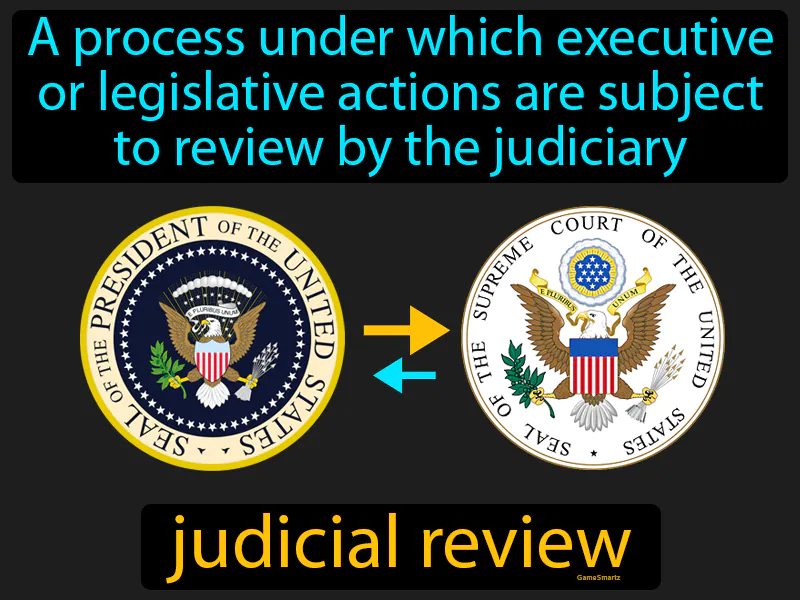Judicial Review
Judicial Review:
Judicial review became an important concept in U.S. history during the early 1800s, especially after the landmark Supreme Court case Marbury v. Madison in 1803. This process allowed the judicial branch to review and potentially invalidate actions by the executive or legislative branches if they were unconstitutional. At a time when the new nation was defining the balance of power among its branches, judicial review helped ensure that no branch became too powerful, safeguarding the system of checks and balances. Today, judicial review still matters because it allows courts to protect individual rights by ensuring that laws and government actions do not violate the Constitution. For example, if a new law is passed that unfairly limits freedom of speech, the courts can use judicial review to strike down the law, protecting everyone's rights to express themselves freely.

Practice Version

Judicial Review: A process under which executive or legislative actions are subject to review by the judiciary. Judicial review. In history, judicial review is when courts decide if government actions follow the Constitution.
